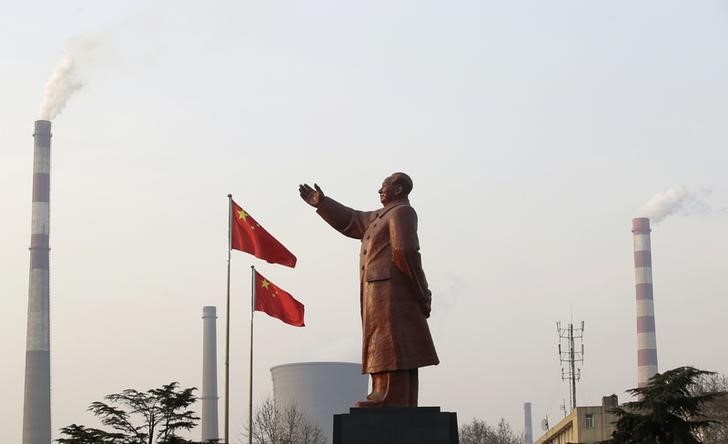Fitch downgrades the ratings of 4 Chinese state-owned asset management companies

[ad_1]
 ©Reuters.
©Reuters. Investing.com – Fitch Ratings on Thursday downgraded the issuer default ratings of four Chinese state-owned asset managers and said further downgrades were likely due to headwinds from expected weakening government support and a slumping property market.
Rating agencies downgrade issuer default ratings China Cinda Asset Management (Hong Kong: ) and China Orient Asset Management downgraded from ‘A’ to ‘A-‘, while China Huarong Asset Management Company Ltd. (Hong Kong: ) and China Great Wall Asset Management downgraded their ratings to “BBB” from “BBB+”.
Fitch also said China Cinda’s outlook remained “stable,” while the remaining three asset managers were placed on negative ratings watch, which could signal further downgrades to their issuer default ratings. The rating agency said it was awaiting financial results due in late 2023 to assess whether the economy will decline further.
Fitch said the downgrade was due to growing uncertainty over government support for China’s major sovereign wealth managers, as well as changes in standards. Please review its independent credit profile.
“The downgrade reflects our view that the government’s propensity to provide timely exceptional support to national asset managers has weakened due to financial inefficiencies and capital constraints at some asset managers, as well as inconsistent government support for the industry.”
“We believe these dynamics reduce the ability of asset managers to effectively fulfill their policy role of purchasing dormant assets within the system.”
The ratings agency still sees China Cinda’s outlook as stable as the company’s financial profile compares favorably with its peers. However, the company’s other three peers have negative ratings as their conditions are likely to deteriorate further by 2023.
Fitch noted that difficulties in China’s real estate market, coupled with a slow economic recovery in 2023, create further headwinds for asset managers. While ratings agencies still expect its financials to recover, the pace of recovery will largely depend on the real estate sector.
Fitch’s move comes weeks after Moody’s put China’s sovereign rating on review. But both agencies confirmed national A+ and A1 ratings in December.
However, Moody’s also expressed concerns about China’s real estate market, which has been in a three-year recession that has led to a number of major defaults in the sector – particularly in China Evergrande (Hong Kong:) and Country Garden Holdings Limited (Hong Kong: ). The industry has been hit by a combination of COVID-19 restrictions, strict financing regulations and a severe loss of confidence among retail buyers.
Beijing has relaxed some rules on financing the industry and introduced a whitelist of developers eligible for financial support until 2023. However, these moves have not brought more support to the industry into 2023 as China’s housing prices and home sales continue to decline.
Chinese concept stocks fell after being downgraded
China’s economy overall remains weak as last year’s post-COVID-19 recovery largely failed to materialize. This in turn has weighed on Chinese stocks, with the blue-chip index among the worst-performing major indices in 2023.
The CSI 300 index fell 1.4% on Thursday, just above a five-year low.
The index fell 0.9%, with losses in mainland stocks dragging the Hong Kong index down 0.5%.
Over the past three years, the Chinese government has repeatedly dispatched state asset management companies to deal with assets that have underperformed in the public market in an effort to boost confidence in China. However, purchases by state-backed funds have so far failed to bring much lasting support to local markets.




